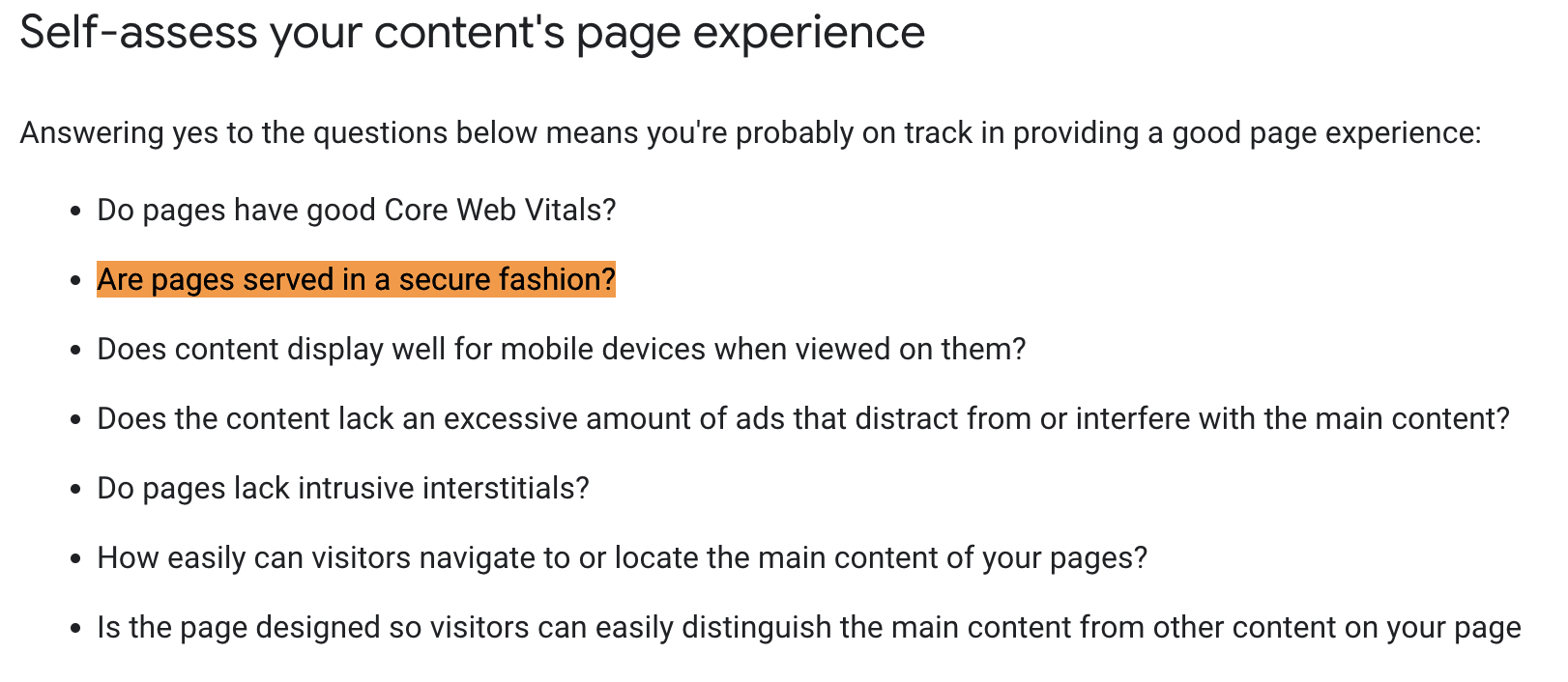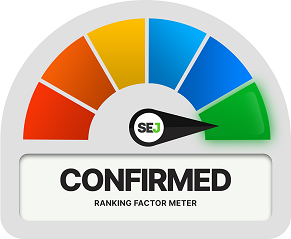Recent updates to Google Search documentation have led to speculation about the importance of HTTPS and Page Experience for search rankings.
While these factors don’t directly influence rankings on their own, Google clarifies they play a role as part of a ranking “system.”
This chapter explores Google’s new perspective on HTTPS and Page Experience, unpacking the differences between ranking systems versus signals.
Additionally, this chapter highlights a broader shift as Google moves away from rewarding technical optimizations like HTTPS in favor of high-quality, helpful content.
While HTTPS is recommended, the takeaway is it’s less significant than comprehensiveness and relevance.
Google’s New Perspective On HTTPS & Page Experience
Google recently updated its documentation about ranking factors, removing page experience from the “ranking systems” documentation. It doesn’t mention HHTPS directly in its current documentation about page experience, but does mention security.
This led to people questioning whether Google changed its direction regarding secure domains.
Google’s emphasis on website security dates back to August 2014, when it announced that HTTPS had become a signal for its search ranking algorithms.
“… over the past few months we’ve been running tests taking into account whether sites use secure, encrypted connections as a signal in our search ranking algorithms. We’ve seen positive results, so we’re starting to use HTTPS as a ranking signal.”
Google clarifies that removing explicit mentions of HTTPS from its list of ranking signals doesn’t mean it should be ignored. They play a role in a less direct way than previously described.
Instead, Google wants businesses and SEO professionals to think about HTTPS differently.
Rather than something that can make a difference on its own, think of HTTPS as an element contributing to a successful page experience, which Google rewards.
Here’s how Google puts it:
“There are many aspects to page experience… While not all aspects may be directly used to inform ranking, they do generally align with success in search ranking and are worth attention.”
Additionally, Google highlights security in its criteria for self-assessing page experience.
 Screenshot from developers.google.com, August 2023
Screenshot from developers.google.com, August 2023Unpacking The Difference Between Ranking Systems & Signals
Google’s Search Liaison sheds light on the difference between ranking systems and signals, stating:
“Ranking systems are different than ranking signals (systems typically make use of signals). We had some things listed on that page relating to page experience as ‘systems’ that were actually signals.
They shouldn’t have been on the page about systems. Taking them off didn’t mean we no longer consider aspects of page experience. It just meant these weren’t ranking systems but instead signals used by other systems.”
In essence, HTTPS and other aspects of page experience are signals used by Google’s core ranking systems, not standalone ones.
Focus On Holistic Page Experience Health
Google’s statements examined in this article suggest businesses and SEO professionals should consider HTTPS and other technical signals as part of a whole measure of page experience, not to “hyper-focus” on individual technical metrics.
Search success increasingly depends on providing high-quality, in-depth content that gives users a good experience and fulfills their intent, and page performance metrics are part of that.
Google Search Advocate John Mueller encapsulated this shift, saying:
“IMO most people don’t need to do anything different. This is not a change in how ranking works, it’s more about how we’ve been thinking about these elements. We’ve seen people hyper-focus on these numbers, that’s not a good use of time & energy. Think holistically instead.”
Yes, HTTPS Is Still A Ranking Factor

Google treats HTTPS as a ranking signal as part of a whole measure of page experience. It still plays a vital role in optimizing page experience. It’s still especially important for any site that handles transactions or holds user data.
Websites can align themselves with Google’s latest guidance by implementing HTTPS as part of an overall strategy to enhance page speed, security, and relevance.
HTTPS is a valuable signal of site quality and integrity. The changes are about how SEO professionals conceptualize and examine their efforts, not about changing the impact of individual signals.
Featured Image: Paulo Bobita/Search Engine Journal
Source link : Searchenginejournal.com
